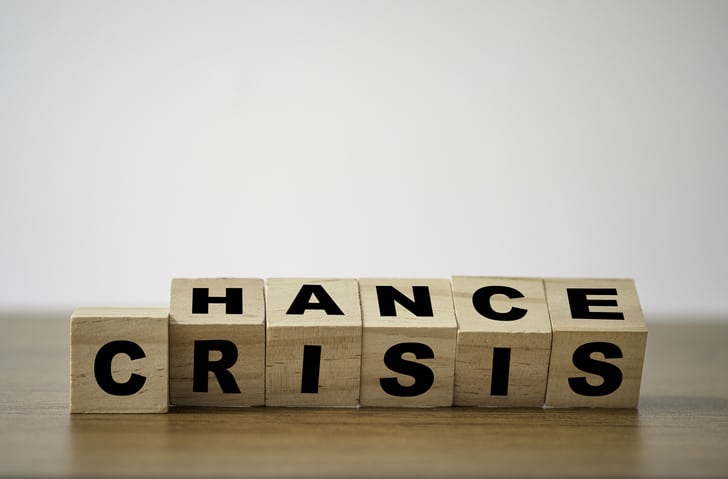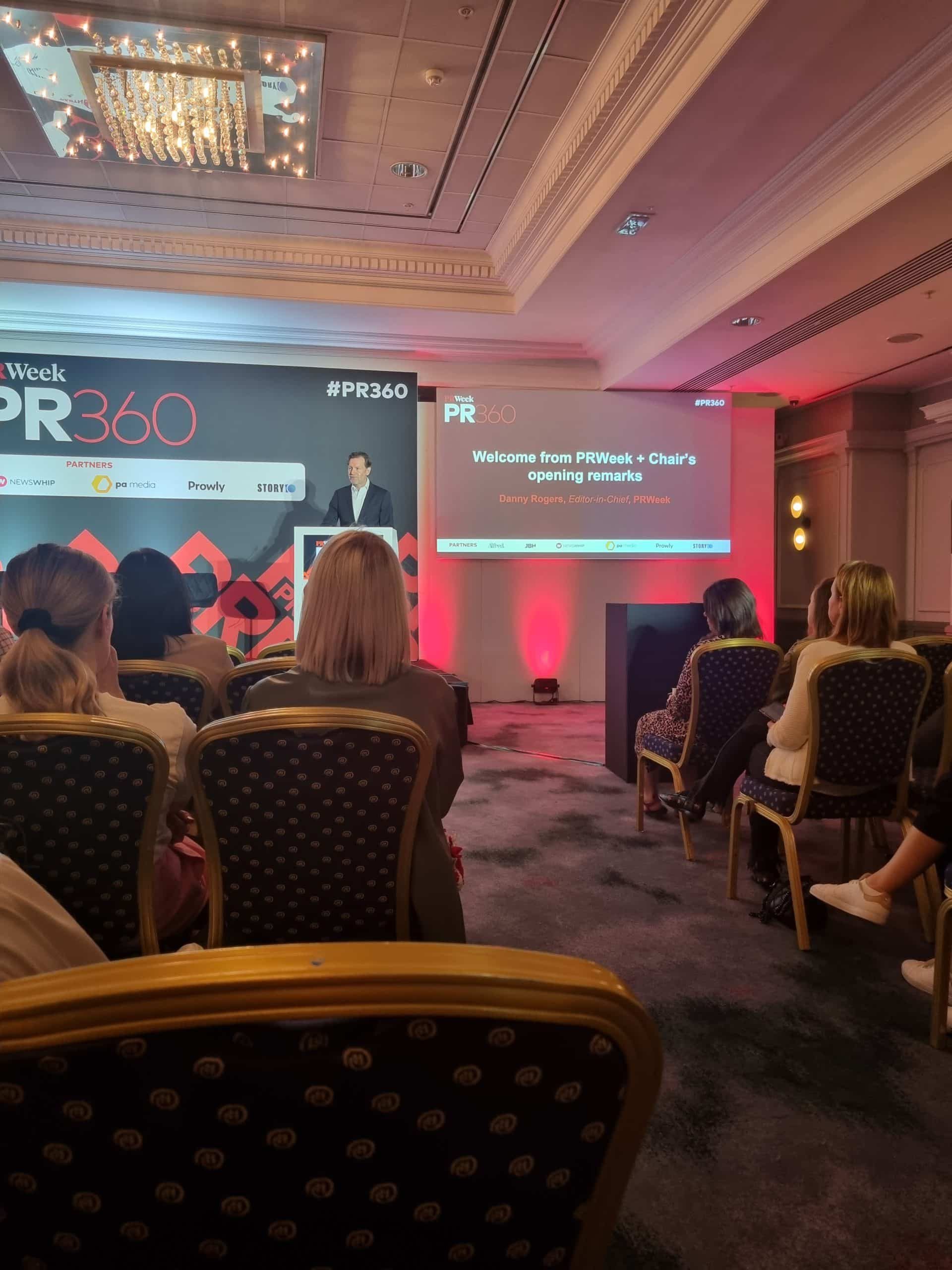
We live in a hyper-connected world, where news travels fast, and social channels amplify even the smallest incidents. While this has advantages, it has also made businesses more vulnerable than ever.
Today, a PR crisis can quickly snowball into a major issue for businesses, damaging their online reputation and bottom line. This significantly impacts a company’s brand image, customer trust, and stakeholder relationships. In addition, the effects can be felt for years because “the internet does not forget.”
In this article, I will try to explore crisis triggers and the impact of PR crises on real-life businesses. Hopefully, you’ll pick a few lessons here to improve your PR crisis management plans.
9 Of the Biggest PR Crisis Of the Last 12 Months
Many companies have experienced PR crises that have significantly impacted their reputation. From product recalls and data breaches to scandals involving key executives, these crises have made headlines and served as cautionary tales for businesses of all sizes.
Let’s unpack nine of the biggest PR crises of the last 12 months.
1. Oil Companies Face Backlash Over Record Profits
In the last few months, energy retailers in the UK and US have faced massive backlash over high energy prices and rightly so in my opinion. The backlash turned into a PR crisis after most retailers revealed bumper results for 2022, which was great for shareholders but made everyone else furious.
For example, in February, a company like Centrica (ex-client), which owns British Gas, noted that they expected an eightfold increase in adjusted earnings per share for 2022. Others, like ScottishPower, have also seen similar profits, with their earnings rising 12% to nearly £1.3bn in the first nine months of 2022. These are staggering amounts.
Publishing all these profits rubbed most consumers up the wrong way since the natural gas prices had risen to 96% and electricity 54%. However, the retailers did try to fix the crises through numbers which did not work as well as expected.
Most retailers tried to justify these profits by showing that they don’t get most of their profits from selling gas and electricity to households but from other divisions of their companies. Some of these divisions include extracting gas and trading gas.
While most even tried to show that the retail energy market, especially in the UK and parts of Europe, is lossmaking, consumers were not having it and it only seemed to bring the focus on how selfish these retailers were acting.
The retailers might have had better luck if they took a page from The Co-operative Group’s PR strategy to avoid negative news coverage by targetting prominent sites and publications with positive stories.
For example, Upworthy covered Co-op’s group CEO, Shirine Khoury-Haq’s statement on getting her children only one Christmas present in 2022. Instead, she pledged to use the rest of the family’s present money to shop for needy children since most parents have been struggling with the high inflation and energy prices.
Instead of an ad, this Christmas @coopuk is focussing on supporting @yourlocalpantry, community fridges with @hubbubUK, Caboodle, The Peer Action Collective through @YouthEndowFund and other great organisations that are making a real impact in their communities. 💙🎄💙 pic.twitter.com/cRmruoqEMj
— Shirine Khoury-Haq (@skhouryhaq) November 26, 2022
In addition to that Retail Gazette announced that the company would reroute its advertising budget for the Christmas season to support organisations like Your Local Pantry to save people money. The Community-based pantries across the UK allow people to pay as little as £3.50 ($4.20) a week to take at least ten grocery items.
Such a PR strategy humanises organisations, while showing that they understand and care about their consumers. This can help take the attention away from the fact that your organisation might be benefiting from a crisis like the energy retailers’ situation.
2. Elon Musk Buying Twitter
I have talked a lot about this on Twitter and my other social channels but the Twitter crisis team has been busy with a series of PR crises since Elon Musk’s closed the $44 billion deal to purchase Twitter. From the massive layoffs to the misinformation spike and the recent monetisation of the blue checkmark🙈, the platform’s users have not been happy with Elon Musk’s takeover.
First, celebrities like Shonda Rhimes, Gigi Hadid, Sara Bareilles, and Whoopi Goldberg have temporarily deactivated their accounts or left Twitter entirely.

By January 2023, companies like Coca-Cola and Unilever had completely stopped advertising on my once favourite social media channel. As a result, the monthly advertising revenue has decreased by 60%. From October 2022 to January 2023, the revenue decreased from around $127 million to just over $48 million.

However, Twitter’s reputation isn’t the only one suffering. Elon Musk’s personal brand has also taken a public hit.
Due to some of his decisions on Twitter, social media posts, and erratic behaviour, he’s become a divisive figure often associated with misinformation, and the public has not been subtle about it.
Late last year, Elon Musk got loudly booed by a crowd after Dave Chappelle tried to introduce him during a comedy special.
3. Gary Lineker & the BBC
A tweet by Gary Lineker, the Match of the Day programme’s host, recently led to a national debate about the new UK government immigration bill and a public relations crisis at BBC.
The tweet featured UK Home Secretary Suella Braverman speaking out against asylum seekers arriving by boats.
Good heavens, this is beyond awful. https://t.co/f0fTgWXBwp
— Gary Lineker (@GaryLineker) March 7, 2023
The BBC responded by suspending Gary Lineker from presenting the Match of the Day programme, claiming they had breached their impartial social media guidelines. According to their guidelines, presenters with significant public profiles are expected to avoid taking sides in political issues and controversies.
This, however, led to a considerable programming disruption since multiple presenters also walked out in solidarity with Lineker, forcing BBC Sport to cancel broadcasts. High-profile broadcasters like Piers Morgan and Jeremy Clarkson also spoke out in support. Additionally, the channel experienced low viewership since most matches had to air with no commentary, which their target audience didn’t like.
While that happened, a strong public debate was also going on about whether BBC talent should remain impartial regarding matters related to the UK government. In addition, BBC’s director-general, Tim Davie, started facing growing pressure to resign due to this PR crisis.
Finally, BBC caved and reinstated Gary Lineker as the programme’s host. All in all it was a bit of a shit show if I am honest.
4. UK Travel Delays (2022/ 2023)
UK passengers have been experiencing a series of long-hour delays both on the road and by air due to employee strike actions that have led to negative reviews and media coverage.
For most of December, flight passengers at key airports like Heathrow and Gatwick suffered hours-long flight delays due to UK Border Force and ground handling staff walkouts. The employees were protesting poor pay that did not reflect the high cost of living.
These delays inconvenienced most passengers since they had to arrive three hours early for long-haul flights and two hours for short-haul ones. At the same time, passengers had to be careful not to show up too early for their flights to avoid congestion and delayed check-ins.
Similar delays were seen at the port of Dover over the Easter weekend due to grounded flights, cancelled trains, and strikes over the pension reforms in France. Some also tied the delays to the post-Brexit passport checks.
These instances are not a good look on Britain’s public transportation systems. They would easily discourage people from travelling through, from or to the country.
5. Disney & Florida’s Don’t Say Gay Bill
According to the most recent Harris Poll, Disney dropped in corporate rankings to 65 in 2022 – a massive drop from its previous spot at 37 in 2021. This drop was due to the company’s stance against the Don’t Say Gay Bill, which prohibits classroom instructions on sexual orientation and gender identity.
Disney’s statement against the bill led the company into a reiteration war with Governor DeSantis’s office that stretched into 2023. It eventually got to the point where the Governor signed off to eliminate the Reedy Creek Independent District, a special tax district the State of Florida created for Disney World to remain independent.
Though the Governor’s bid succeeded, 19 days before the final bill was signed, the outgoing board signed an agreement that stripped the board of all the power and gave it back to Disney. In short, the agreement bars any board from having any say on Disney’s building projects. Additionally, Disney still has the final say on any alterations to the property, which the board should inform Disney of without delay or conditions.
The agreement’s terms were also set through a Rule Against Perpetuities—which states that the policy will continue until 21 years after the last survivor of the descendants of King Charles III dies.

This whole back and forth between Disney and the state of Florida begs the question. When is taking a stance worth it, and are you ready to handle the repercussions that come with it?
6. P&O Staff Layoff
It’s been slightly over a year since P&O fired almost 800 employees without notice and over a video message. This was a terrible way to treat staff and they were rightly derided. As the company made the announcement, they had already lined up cheaper foreign agency staff to replace the locals.
The company’s chief executive, who still holds office to date, confidently told the MPs committee that the company knowingly acted illegally and would do it again. The management team got most fired workers to sign non-disclosure clauses in their redundancy agreements in exchange for payoffs.
The story is still getting media attention today, though on limited levels, for its “corporate cynicism” and inhumane mass firing. However, it seems the company did actually get away with one of the biggest PR crises, despite the PM and MPs’ vow to ensure the company paid for their mistake.
7. FIFA World Cup in Qatar (2022)
Qatar faced a severe PR crisis over human rights violations and labour exploitations that led to the death of migrant workers constructing the 2022 World Cup infrastructure.
For instance, the workers worked long hours and were forced to work under unsafe conditions, like extreme heat. Yet, despite continuous warnings from civil rights groups and workers, FIFA still didn’t impose strong conditions to protect the workers and remedy this.
There was also the issue of women’s rights violations due to the country’s discriminatory male guardianship rules. The rules deny women the right to make key life decisions, like marriage, studying abroad, travel, and receiving certain reproductive health care.
Additionally, members of the LGBTQ community in Qatar are subjected to one to seven years in prison, where they receive severe harassment and conversion therapy. A FIFA Qatar World Cup Ambassador described homosexuality as “damage in the mind” in an interview.
Football associations and teams released statements protesting against Qatar’s human rights violations, which FIFA only replied to with letters telling them to focus on football. The letters noted that the sport should not be dragged into ideological or political battles or hand out moral lessons.
FIFA has often ignored most protests about hosting the World Cup in countries known for human rights violations. This has been stewing for a long time and might end up being a full-blown crisis. Eventually, the football association will have to address the issue.
8. Matt Hancock Sting
The Led By Donkey’s crisis is an interesting story to look at, even though it’s not a B2B or B2C PR issue. The PR crisis got a lot of attention and had a significant impact on reputations.
The campaign group reached out to 20 members of parliament, asking if they were comfortable sitting on the advisory board of a fake South Korean consultancy firm.
Matt Hancock and three other MPs agreed to have an online interview with the “company” and even negotiated their daily rates. The former health secretary agreed to a £10,000 a day and, in a different clip, a £1500 hourly rate.
Though the MPs were within their rights to consider this opportunity since they were legally allowed to seek employment outside of parliament, they still received backlash.
Most of it centred around the fact that the MPs should focus on working hard for their constituents, not getting second jobs. This was a big issue since the country has been facing high inflation and cost of living, which people felt should come above the MPs’ personal interests.
9. Kanye West & Adidas
Kanye West vs. Adidas had to be the other big public relations crisis that led to huge financial implications. The brand terminated its collaboration with Kanye West in October 2022 following his anti-semitic comments on social media that violated the company’s values.
The termination resulted from mounting pressure from people on social media platforms after Kanye’s antisemitic comments.
Adidas released a statement stating they’d stop dealing with Yeezy’s business immediately, which they anticipated would negatively impact its net income. However, it seems Adidas didn’t have a great crisis management plan, as investors recently sued the company over Kanye’s deal.
The investors claim Adidas knew of Kanye West’s problematic behaviours years before they terminated the deal. They also allege that Adidas failed to limit the financial losses that came with terminating the deal for lacking an action plan to minimise their losses.
Adidas had admitted that it could lose around $647 million in total since they were left with hundreds of millions of euros worth of unsold Yeezy products. Of the $647milion, $247 was 2022’s loss, and around $400 is the estimated amount the company is expected to lose in 2023. The story is still developing, so it’ll be interesting to see how it goes.
My final thoughts
A public relations crisis can have far-reaching and long-lasting impacts on a business and its reputation. This can range from damage to brand image and loss of revenue to legal consequences and strained stakeholder relationships, as seen in the examples above.
However, businesses can take proactive steps to mitigate these risks by having a crisis management plan, a crisis communication team, and great communication channels. Also, communicate transparently with stakeholders and take swift, decisive actions to address the root cause of the crisis.
Learning from the examples of past PR crises, you can identify potential crises, minimise their impact, and emerge from them with your reputation intact.
Chris Norton is the founder of Prohibition and an award winning communications consultant with more than twenty years’ experience. He was a lecturer at Leeds Beckett University and has had a varied PR career having worked both in-house and in a number of large consultancies. He is an Integrated PR and social media blogger and writes on a wide variety of blogs across a huge amount of topics from digital marketing, social media marketing right through to technology and crisis management.


